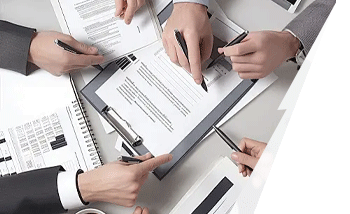Travel Safety Tips for Tourists in China: Protect Your Belongings and Stay Secure
Traveling in China can be an amazing experience, but keeping your valuables and personal belongings safe is crucial. Here are practical tips covering prevention, common risks, and how to handle emergencies, so you can enjoy a worry-free trip.
1. Preventive Measures
Keep valuables secure
- Store your passport, cash, and credit cards in your hotel safe. Carry a copy or a digital scan just in case.
- Use anti-theft backpacks or waist bags to keep important items close to your body. Avoid putting valuables in easily accessible pockets or the outer compartments of your bag.
- In crowded places like subway stations or tourist attractions, wear your backpack on your chest to prevent theft.
Spread out your money and cards
- Don’t keep all your cash and cards in one place. Splitting them up reduces the risk of losing everything at once.
- Carry a small amount of cash for minor purchases and avoid showing large sums in public.
Use safe payment methods
- Mobile payment apps like WeChat Pay and Alipay are widely used in China. Set them up before traveling and secure your accounts.
- When using ATMs, choose machines inside banks or monitored areas. Check for any suspicious devices like card skimmers.
Protect your personal information
- Avoid sharing your passport number, bank details, or hotel address with strangers.
- Use a VPN on public Wi-Fi and avoid logging into bank accounts or entering sensitive info.
2. Common Risks and How to Handle Them
Pickpockets and thieves
- High-risk areas: Crowded tourist spots, train stations, subways.
- Tips:
- Stay aware of your surroundings and be cautious of overly friendly strangers or staged distractions.
- If your wallet or phone is stolen, call 110 (police) immediately and say: “Wǒ de qiánbāo bèi tōu le” (“My wallet was stolen”).
- Go to the nearest police station with copies of your passport and any evidence to report the theft.
Lost items
- Common scenarios: Forgetting belongings in taxis, restaurants, or public places.
- Tips:
- Return to the location quickly or contact the business (e.g., taxi company, restaurant manager).
- If your passport is lost, contact your embassy or consulate and file a police report (“Wǒ de hùzhào diū le” – “My passport is lost”).
- Use device location tools like “Find My iPhone” to track lost electronics.
Scams and counterfeit goods
- High-risk areas: Tourist attractions may have fake guides, overpriced souvenirs, or bogus tickets.
- Tips:
- Buy tickets and services through official channels (official websites or reputable travel agencies).
- Decline offers of “free” services or invitations from strangers.
- Keep receipts and shop at trusted stores for valuables like jade or tea.
3. Useful Tools and Preparations
Backup important documents
- Save digital copies of your passport, visa, itinerary, and emergency contacts on your phone or cloud.
- Record bank card numbers and emergency contacts for quick reporting.
Learn basic emergency phrases
- Memorize phrases like “I need help” or “My wallet was stolen.”
- Carry a card with your hotel’s name and phone number for easy assistance if lost.
Buy travel insurance
- Make sure it covers theft, lost property, and emergency medical care.
- Keep your policy number and claim phone handy and document any incidents (police reports, receipts).
4. Safety in Specific Situations
Public transport
- Watch your luggage at train stations and airports; never leave bags unattended.
- Use reputable taxi or ride-hailing apps (like Didi) and note the car plate.
Accommodation safety
- Check door locks when entering your hotel room and keep valuables out of sight.
- Don’t open doors to strangers without verification; contact the front desk if unsure.
Nighttime safety
- Avoid walking alone in isolated areas late at night. Stick to main roads or use trusted transport.
- Let friends or family know your itinerary and keep your phone charged.
5. Handling Emergencies
Police and emergency services
- Dial 110 (police), 120 (medical), or 119 (fire) for help. Keep instructions simple.
- If there’s a language barrier, ask locals or police for help, or use a translation app.
Contact your embassy
- If your passport is lost or you face serious problems, contact your country’s embassy or consulate. Save the contact info before traveling.
- Common phrase: “Qǐng bāng wǒ liánxì dàshǐguǎn” (“Please help me contact the embassy”).

